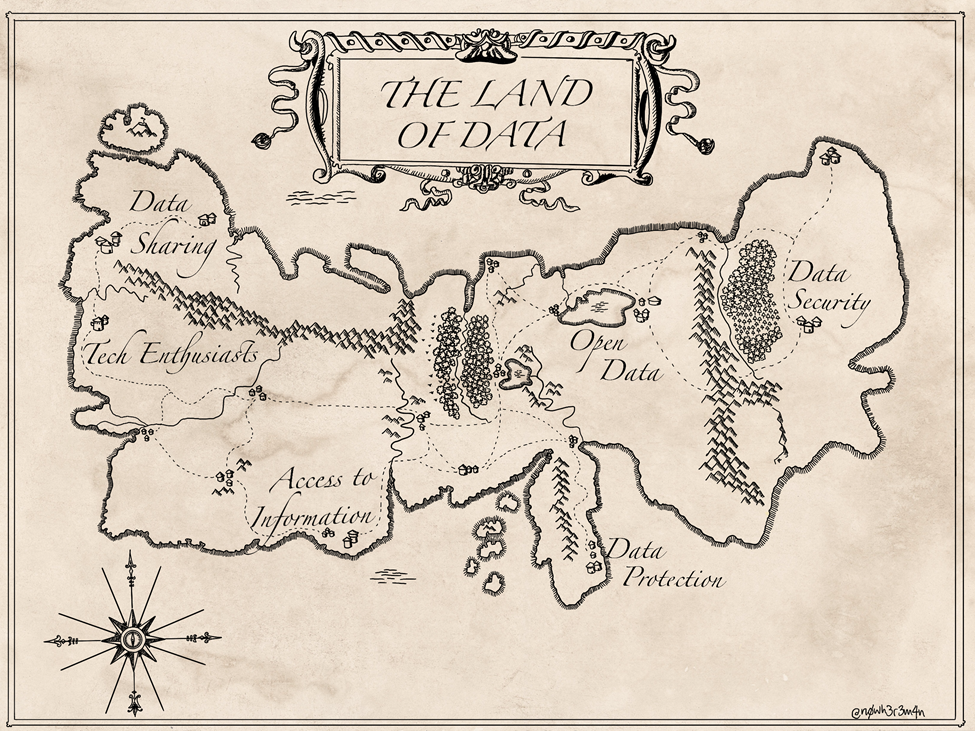The Land of Data
I quite like how this map by Arturo Muente-Kunigami displays the tensions between the different conceptual approaches to data displays the inherent tensions between them:

The land of Data by @n0wh3r3m4n
The map is taken from an essay advocating for a more holistic approach to data. Here is the bit where he describes the different approaches/camps:
Take, for example, the Transparency and Access to Information camp, demanding that virtually all information should be made available to the public if requested (with few exceptions like national security and personal information). Close to their tent is the Open Data camp, requiring a proactive publication of all data (with similar exceptions) in machine readable formats and with an open license to both improve transparency and accountability while promoting innovation. We also have the Data Protection cluster, primarily concerned about the potential violation of rights and discrimination that could arise from unregulated collection and use of personal data. Next, a growing group of Technology Enthusiasts, mostly from the private sector, promotes the use of all data available to fuel new technologies (notably, artificial intelligence, big data analytics, and automation) under the promise of a more effective and efficient delivery of goods and services. This group includes a subset of more aggressive vendors buying unstructured data to target consumers with personalized proposals. Digital Government Authorities are promoting the concept of “data sharing” (interoperability) so that citizens don’t have to present information to one public agency if another agency already has it. And close by, Cybersecurity folks are prompting everyone (governments and private companies) to put in place security measures, highlighting the potential threats that arise from the mere existence of these huge pools of data and the harm that criminals could inflict to the economy should they get their hands on them. There sure are other groups that have not been listed.
The main problem with this description is the use of the term “tech enthousiasts” instead of the much more appropriate “surveillance capitalists” for describing those who “promote the use of all data available to fuel new technologies”.